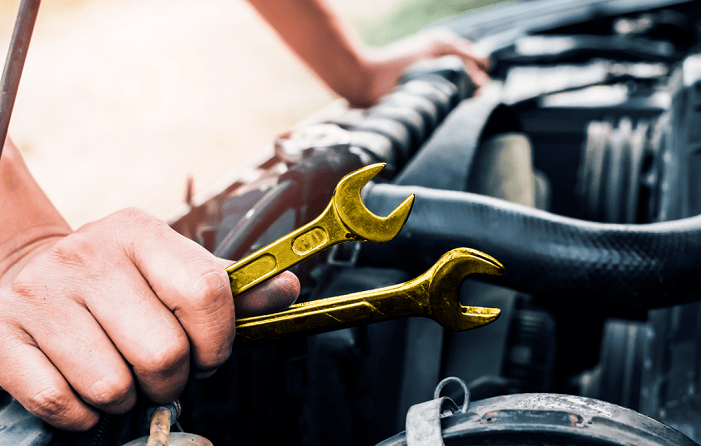Common Causes of Shaking at Idle
1. Idle Air Control Valve (IACV) Issues
The Idle Air Control Valve regulates airflow to the engine when it’s idling. If it becomes clogged or malfunctions, it can disrupt the air-fuel mixture, causing the engine to shake. Symptoms of a faulty IACV often include erratic idle speeds and stalling
2. Fuel System Problems
Clogged fuel injectors can impede the fuel flow to the engine, leading to rough idling. Dirty fuel filters or low fuel pressure may also contribute to this issue. Regular maintenance, including cleaning or replacing injectors, can improve performance
3. Ignition System Failures
Components like spark plugs and coil packs play a critical role in engine performance. If these components are worn or malfunctioning, they can cause misfires, leading to vibrations at idle. Regular checks and timely replacements can prevent this
4. Engine Mount Issues
Worn or broken engine mounts can cause excessive vibrations, especially noticeable when the vehicle is stationary. If the mounts are loose, they may need to be tightened or replaced
5. Mass Airflow Sensor (MAF) Malfunctions
A dirty or faulty MAF sensor can lead to incorrect air-fuel mixture readings, resulting in rough idling. Cleaning the MAF or replacing it if necessary can help resolve this issue
6. Transmission Problems
Sometimes, issues within the transmission, such as a malfunctioning torque converter, can cause the car to shake when idle. If you suspect transmission issues, it’s important to consult a professional for a thorough inspection
Diagnosing the Problem
If you notice your car shaking at idle, here’s a step-by-step approach to diagnosing the issue:
- Check for Warning Lights: Look for any dashboard warning lights. Engine codes can provide clues about what might be wrong.
- Inspect Engine Components: Check the IACV, fuel injectors, and ignition components for wear and damage.
- Listen for Unusual Noises: Pay attention to any unusual sounds when the engine shakes. This can help pinpoint the problem area.
- Monitor Idle Speed: Note any fluctuations in idle speed, which can indicate issues with the IACV or fuel system
When to Seek Professional Help
If the shaking persists or worsens, it’s crucial to consult a mechanic. Driving a car that shakes can lead to more severe issues, including damage to the engine or transmission. A qualified technician can perform diagnostic tests to identify the problem accurately and suggest the best course of action
Conclusion
Understanding why your car shakes at idle but smooths out while driving is essential for maintaining vehicle performance and safety. From issues with the idle air control valve to problems with the ignition system or engine mounts, several factors could be at play. Regular maintenance and prompt attention to warning signs can help you keep your vehicle running smoothly.
If you’re experiencing this issue, don’t hesitate to seek professional assistance to ensure your vehicle remains in top shape.

